
by Susie Newday (Israel) | Nov 28, 2013 | 2013, Being Thankful, Family, Israel, Multicultural, Religion, Spirituality, Susie Newday, Traditions, World Moms Blog, World Motherhood
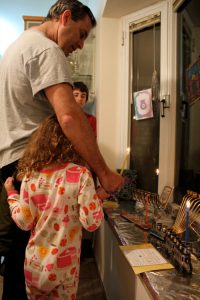 This year, we have a unique occurrence, Thanksgivvukah. (Yes, I know that by now the phrase is probably coming out of your ears.) There are debates as to whether Thanksgivukkah is a once in a 70,000 year event or a once in a decade event. Either way, the last time it happened was 1888 and I doubt any of us will be around for the next one.
This year, we have a unique occurrence, Thanksgivvukah. (Yes, I know that by now the phrase is probably coming out of your ears.) There are debates as to whether Thanksgivukkah is a once in a 70,000 year event or a once in a decade event. Either way, the last time it happened was 1888 and I doubt any of us will be around for the next one.
The Jewish month of Kislev, the month in which Chanukkah occurs, is considered a month of miracles. It’s a month that serves as a reminder to actively do something to banish the darkness from our lives and be a light unto others and the world.
Last night was the first night of the 8 day Jewish holiday of Chanukkah and tonight is the American holiday of Thanksgiving.
I’m grateful for the unique convergence of the two holidays because I think that the message of Chanukah and Thanksgiving is really the same; practice gratitude, practice kindness and be the love you wish to receive. That is the only way to banish the darkness from this world and spread the glow of goodness to the farthest corners of the earth.
So in honor of Thanksgivukkah here are some ideas for making the world a better place.
Embrace the Thanksgiving tradition of practicing gratitude, but go one step further and practice it daily. Be grateful for all the gifts in your life be they big or small.
Embrace the Chanukkah tradition of spreading your light, your inner light, far and wide. I think that the best way to combine gratitude and being a light unto the world is to get into the habit of doing acts of kindness.
So here are ideas for 8 acts of kindness for 8 days of Chanukah, or for that matter, any day of the year.
Smile at everyone you pass
A smile costs you absolutely nothing and you never know what a potentially big impact a single smile can have on someone else’s day.
Write a letter to someone who has made a difference in your life
People don’t always realize the impact they have had on someone. Why not let them know?
Give someone a big hug
People need physical contact and hugs make (most) people feel good.
Forgive someone
This is actually kindness that benefits you the most because forgiving is really for the forgiver.
Ask if you can help
Some people don’t know how to ask for help or don’t think there is anyone who can help them. It can be as simple as asking a parent with a screaming child in a grocery store if they need help or lending your expertise to someone who can benefit from it.
Offer to babysit for someone
Every parent knows that as much as we love our kids, sometimes we need some time apart. Give the gift of sanity to another parent.
Leave a note in a library book
A little note of kindness and encouragement left inside a library book can make all the difference to a struggling parent. Take a look at this amazing note my sister found tucked into the pages of a parenting book.
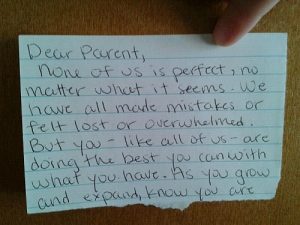
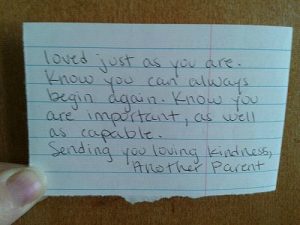
Listen, truly listen
Each and every one of us can learn how to listen better. Listen without thinking about what you are going to reply. Listen with an open mind and most importantly, an open heart. As Buddha said: “A thousand candles can be lit from the flame of one candle, and the life of the candle will not be shortened. Happiness can be spread without diminishing that of yourself.”
So Happy Chanukkah and Thanksgiving to everyone. This holiday season go out and be the light and light the way. Be the person whose act of kindness or love inspires other people to pay it forward and spread kindness and love. One person DOES have an impact, it all starts with the will to make a change.
What is your favorite act of kindness?
This is an original post by World Moms Blog Africa & Middle East Regional Editor, Susie Newday in Israel.
Photo credit to the author. (And to her sister.)
And just for fun, here is a Thanksgivukkah spoof. (If you don’t understand some of the words, they are probably in Hebrew. Just ask me in the comments and I will translate them if you want.)
Susie Newday is a happily-married American-born Israeli mother of five. She is an oncology nurse, blogger and avid amateur photographer.
Most importantly, Susie is a happily married mother of five amazing kids from age 8-24 and soon to be a mother in law. (Which also makes her a chef, maid, tutor, chauffeur, launderer...) Susie's blog, New Day, New Lesson, is her attempt to help others and herself view the lessons life hands all of us in a positive light. She will also be the first to admit that blogging is great free therapy as well. Susie's hope for the world? Increasing kindness, tolerance and love.
You can also follow her Facebook page New Day, New Lesson where she posts her unique photos with quotes as well as gift ideas.
More Posts - Website
Follow Me:






by Mamma Simona (South Africa) | Nov 27, 2013 | 2013, Africa, Family, Home, Kids, Life Balance, Motherhood, Older Children, Parenting, South Africa, Stress, Womanhood, World Motherhood
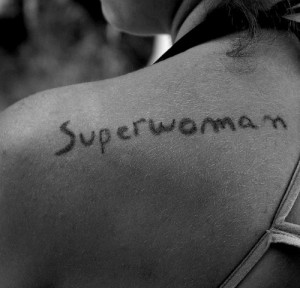 Several years ago I was diagnosed with Fibromyalgia. It’s a common disorder affecting about 5% of all women and is characterized by widespread pain and many other symptoms.
Several years ago I was diagnosed with Fibromyalgia. It’s a common disorder affecting about 5% of all women and is characterized by widespread pain and many other symptoms.
Fibromyalgia is not a psychiatric disorder, even though a particular kind of anti-depressant or anti-seizure medication is sometimes helpful in controlling the nerve pain.
In my case, on a “good” day I feel the same body “achiness” and fatigue normally associated with the flu. On a “bad” day any movement brings tears to my eyes.
The reason I mentioned my Fibromyalgia is just to illustrate a point – as moms we tend to put everybody else’s well-being ahead of our own. My daily pain and fatigue is my new “normal” so for the most part I don’t even mention it. Despite my daily pain, I hold down a full-time job, do chores, do charity work and study online. Do I think I’m “special” for doing all that? Absolutely not!
Yet I still feel guilty because my husband cooks most night. I also rely on my teenage daughter to do a lot around the house and on my son to clean up the yard. I constantly feel that I’m not doing a good enough job of taking care of my house and my family. I want to be a better wife, mother and employee but I’m physically unable to do more than what I already do.
My husband and children are very loving and supportive. They don’t have a problem with helping out. I’m the one who feels like a failure when I can’t do everything I think I should be doing.
Even knowing that I’m doing the best I can, my inner critic doesn’t seem to cut me any slack. My best is simply not good enough. There, I’ve said it. I don’t think I’m a good enough wife and mother and that’s all I care about. What’s funny is that I know (in my head) that I can’t be all bad. I know I must be doing something right because I have a great relationship with my husband and I’ve helped to raise two really amazing young people.
Recently I started feeling worse than usual but I just chalked it up to my Fibromyalgia and kept on going. I finally went to see my doctor when the bad days weren’t letting up.
It turned out that I was feeling so awful not because of my Fibromyalgia (although that surely didn’t help) but because I had a bacterial infection that had spread from my sinuses to my chest. I was diagnosed with sinusitis, laryngitis and a chest infection – all of which required antibiotics and bed rest. I didn’t even know it was possible to have all three at the same time.
Obviously my doctor booked me off work. I stayed home but of course I felt guilty about not going to the office. I know I’m far from unique in this regard. No matter how “good” we moms try to be, we always feel that we’re somehow dropping the ball.
Why is that? Why is it that we are able to be so supportive of each other and so compassionate towards others, but we’re so harsh with ourselves?
I know that I need to learn a new way of living. I need to find a way to stop feeling guilty about things that are outside my control.
If you were hoping for some answers from this post, I’m sorry to disappoint you. I don’t have any answers, just a lot of questions.
How do you change more than 40 years of conditioning so that your children learn a different way of being through your example? How do you learn to accept your limitations with grace and gratitude? How do you start being as kind to yourself as you are to others?
This is an original post for World Moms Blog by Mamma Simona from Cape Town, South Africa. She shares her home with a husband, 2 kids, 2 cats and 2 dogs.
Photo Credit To: Hans Van Den Berg : Flickr Creative Commons
This photo has a creative commons attribution license.
Mamma Simona was born in Rome (Italy) but has lived in Cape Town (South Africa) since she was 8 years old. She studied French at school but says she’s forgotten most of it! She speaks Italian, English and Afrikaans. Even though Italian is the first language she learned, she considers English her "home" language as it's the language she's most comfortable in. She is happily married and the proud mother of 2 terrific teenagers! She also shares her home with 2 cats and 2 dogs ... all rescues.
Mamma Simona has worked in such diverse fields as Childcare, Tourism, Library Services, Optometry, Sales and Admin! (With stints of SAHM in-between). She’s really looking forward to the day she can give up her current Admin job and devote herself entirely to blogging and (eventually) being a full-time grandmother!
More Posts - Website
Follow Me:


by Elizabeth Atalay | Nov 26, 2013 | 2013, Africa, AIDS, Health, ONE, World Events, World Moms Blog
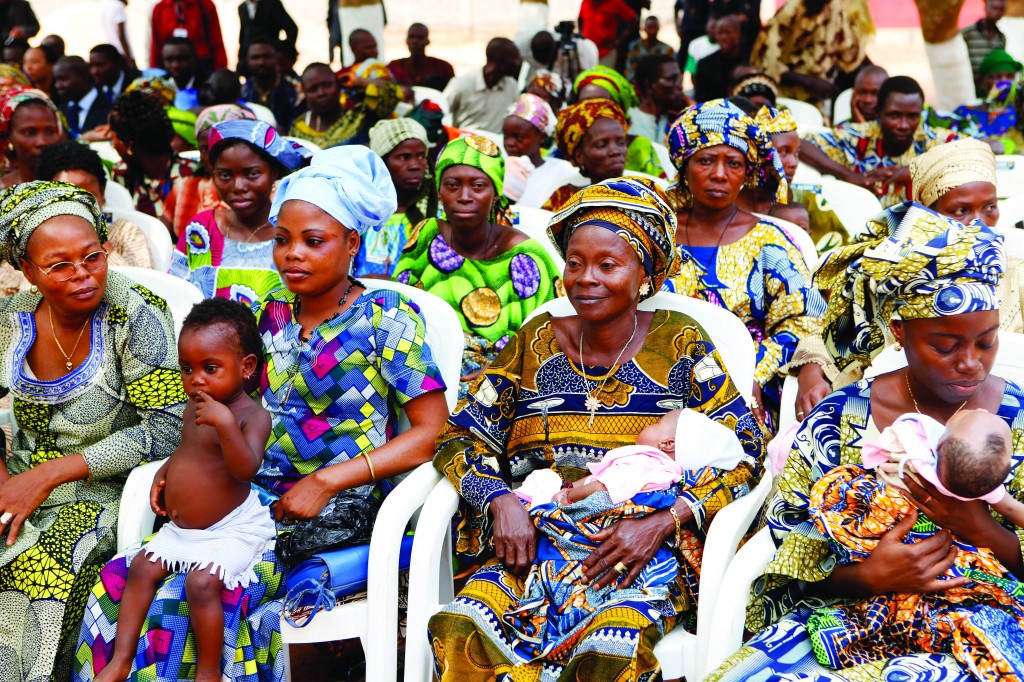
A community meeting of HIV-positive women who have benefitted from prevention of mother-to-child transmission (PMTCT) services and health counselors in Dangbo, Benin. Through the expanding availability of these services, it is now possible to imagine a generation of children being born free from HIV.- photo credit The Global Fund
Optimistic news was released today in the annual accountability report on AIDS by ONE. The highlight is that the sweeping statement “AIDS in Africa” has now become obsolete. African countries are shown in this new report to have made such widely varied progress in the fight against AIDS that the generalization of the continent as a whole no longer makes sense. At this point there are 16 countries in Sub-Saharan Africa that have reached the tipping point of being at the beginning of the end of AIDS. At the same time, other countries are still far behind in the struggle against the disease.
On the 25th World AIDS Day marked on December 1st of 2013, ONE’s new report on the global AIDS fight shows we are closing in on the tipping point.
According to ONE’s 2013 analysis: If current rates of acceleration continue, we could achieve the beginning of the end of AIDS – when the number of people newly added to treatment surpasses the number newly infected with HIV by 2015
Ironically, the AIDS fight has lost some political momentum because of its many successes. Because it is no longer perceived as a global health emergency, but rather a chronic and manageable disease, the fight has lost some of its political momentum. Along with the financial commitment, political leadership at the national and local levels has proved to be essential in driving real gains across the continent.
The three key targets outlined in the report where world leaders should focus significant attention in order to make headway against the disease are:
- The virtual elimination of mother-to-child transmission of HIV by 2015
- Access to treatment for 15 million HIV-positive individuals by 2015
- The drastic reduction of new adult and adolescent HIV infections, to approximately 1.1 million or fewer annually, by 2015.
The data in the assessment breaks down the progress of nine African countries and where they stand in meeting the 2015 goals:
leading the Way: Ghana, Malawi and Zambia are great examples of how international donors, national governments and key civil society leaders can work together to achieve accelerated progress in the fight against AIDS. Zambia and Malawi entered the decade with two of the world’s most widespread, crippling AIDS epidemics. Today, they – along with Ghana – are the world’s leaders in ending the epidemic, having made swift and steady progress over the last few years. All three countries have committed significant national resources for health, have reached and surpassed the tipping point at the country level, and are making even further headway towards the control and defeat of the disease.
ones to Watch: South Africa, Tanzania and Uganda have shown real dynamism but erratic progress as they face massive disease burdens, shifting political landscapes and unique, country-specific challenges. These countries have made significant strides in recent years, but their progress has been slower than in the leading countries. South Africa and Tanzania hit the tipping point for the beginning of the end of AIDS for the first time just last year, and Uganda – with an AIDS ratio of 1.1 – is close to the tipping point but has yet to reach it. Given unsteady progress against the AIDS epidemic in recent years, how these countries move forward in the next 1–2 years will be crucial.
Urgent Progress needed: Cameroon, Nigeria and Togo have not made enough progress, having often been hampered by a lack of political will or competing political priorities, insufficient financial commitments, inefficient delivery systems and a lack of specific attention to prevention. Togo, in particular, had reached the AIDS tipping point in 2010 but has slipped back since. Meanwhile, progress towards the beginning of the end of AIDS has been largely stagnant in Nigeria and Cameroon, albeit with dramatic year-to-year fluctuations in the AIDS ratio. These countries, and others like them, must show a serious acceleration of efforts to achieve the beginning of the end of AIDS by 2015.
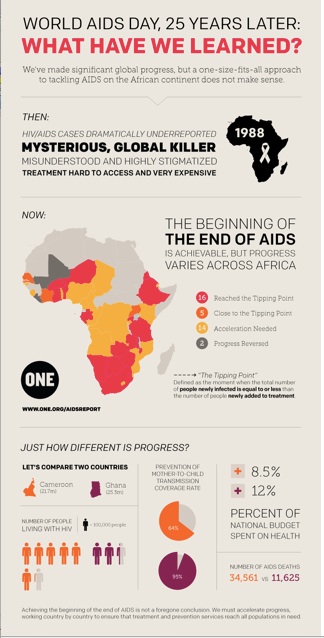
Despite the overall positive progress made in the fight against AIDS the momentum needs to continue to win. Prevention of new infections is key, transparency in reporting, political involvement, targeted resources, and keeping the AIDS issue in the forefront of the global agenda are all critical to the success of this campaign.
This is a big week for the AIDS community, with a hugely successful (RED) auction this past Saturday night, the 25thWorld AIDS Day, and the Global Fund replenishment. The (RED) auction on Saturday raised $13 million which was matched by Bill and Melinda Gates for a total $26 million for the Global Fund. Let’s keep the momentum going!
To learn more you can read the full report
here.
About ONE
Co-founded by Bono, ONE is a campaigning and advocacy organization of more than three million people taking action to end extreme poverty and preventable disease… because the facts show extreme poverty has already been cut in half and can be virtually eradicated by 2030.
ONE does not ask for your money, but for your voice.
Find out more at ONE.org
This is an original World Moms Blog post written by Elizabeth Atalay of www.documama.org. All information comes from The Beginning of The End? Tracking Global Commitments On AIDS Volume 2 ONE Data Report.
- A community meeting of HIV-positive women who have benefitted from prevention of mother-to-child transmission (PMTCT) services and health counselors in Dangbo, Benin. Through the expanding availability of these services, it is now possible to imagine a generation of children being born free from HIV.- photo courtesy of ONE.org

Elizabeth Atalay is a Digital Media Producer, Managing Editor at World Moms Network, and a Social Media Manager. She was a 2015 United Nations Foundation Social Good Fellow, and traveled to Ethiopia as an International Reporting Project New Media Fellow to report on newborn health in 2014. On her personal blog, Documama.org, she uses digital media as a new medium for her background as a documentarian. After having worked on Feature Films and Television series for FOX, NBC, MGM, Columbia Pictures, Warner Brothers, 20th Century Fox, and Castle Rock Pictures, she studied documentary filmmaking and anthropology earning a Masters degree in Media Studies from The New School in New York. Since becoming a Digital Media Producer she has worked on social media campaigns for non-profits such as Save The Children, WaterAid, ONE.org, UNICEF, United Nations Foundation, Edesia, World Pulse, American Heart Association, and The Gates Foundation. Her writing has also been featured on ONE.org, Johnson & Johnson’s BabyCenter.com, EnoughProject.org, GaviAlliance.org, and Worldmomsnetwork.com. Elizabeth has traveled to 70 countries around the world, most recently to Haiti with Artisan Business Network to visit artisans in partnership with Macy’s Heart of Haiti line, which provides sustainable income to Haitian artisans. Elizabeth lives in New England with her husband and four children.
More Posts

by World Moms Blog | Nov 25, 2013 | 2013, Body Image, Child Care, Childhood, Communication, Cultural Differences, Education, Eye on Culture, Family, Guest Post, Kids, Language, Life Balance, Motherhood, Parenting, Preschool, Relationships, School, Sex, Sexuality, Traditions, Uncategorized, Women's Rights, World Events, World Interviews, World Mom Feature, World Moms Blog, World Motherhood, Younger Children
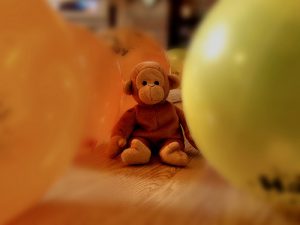 My neighbours in the Netherlands just had a baby and have proudly decorated their window with pink balloons and a garland saying: ”Hooray, a girl!”
My neighbours in the Netherlands just had a baby and have proudly decorated their window with pink balloons and a garland saying: ”Hooray, a girl!”
This would probably be shocking to a new category of Swedish parents, who refuse to reveal the sex of their baby to family and friends as well as to daycare staff. The baby is given a gender-neutral name, and will be dressed in anything but pink and light-blue.
Why? The parents don’t want their child to be subjected to society’s division of human beings into male and female, claiming that the stereotypes linked to it limit the child’s freedom.
While this remains rather rare, there is a rapidly increasing number of preschools in Sweden where gender equality is the main ideological and educational basis.
In these schools, the staff strives to treat girls and boys equally in all respects. They don’t hide the fact that both sexes exist, but don’t make a point of it and won’t encourage the children to play and behave in a way that is typical for their sex. They won’t call them girls and boys, but refer to them as ”friends” or ”children”.
Conveniently enough, a new pronoun is making its way into the Swedish language: ”hen”, meaning both ”he” and ”she” (”han” and ”hon” in Swedish). When the practice of using ”he” for both sexes in law texts was changed to the more cumbersome ”he or she”, texts became difficult to read and people started looking for other solutions.
The idea of ”hen” comes from the Finnish language (although Finnish is completely different from Swedish; its closest relative among European languages is Hungarian), which uses the pronoun ”hän” for both sexes. Apart from being used in texts to increase readability, the Swedish pronoun ”hen” is now used by advocates of gender neutrality.
The new pronoun and gender-neutral preschools are hot topics in Sweden right now. An increasing number of people like and make use of them, but a big part of the population is very critical towards them.
Sweden is one of the leading countries when it comes to gender equality. Thanks to the important work that has been done in this regard, women and men now basically have the same opportunities in all areas of life.
When gender equality turns into gender neutrality, however, are we still going in the right direction? Isn’t there a risk that gender-neutral treatment introduces another type of prejudice? When girls behave in a traditionally girly way, and boys behave in a traditionally boyish manner, will this be happily accepted or will they feel that their behaviour is wrong? Will there be a new ideal of tough girls and soft boys, as some critics fear?
How will children develop when their parents actively try to conceal what sex they are? Will they think that it’s bad to be a boy or a girl? Will they revolt against their upbringing and shower their own daughters with princess stuff, and their sons with cars and toy guns? Or will these children simply be freer and more unprejudiced than those who grow up in more traditional families, and contribute to a positive change in society?
Time will show.
What are you thoughts on this modern, Swedish approach to gender equality?
Kristina was born in Hamburg, Germany, but moved to Sweden at the age of 8 (her mother is German, her father Swedish). She studied French and linguistics and works as a translator. At the moment she lives in the Netherlands with her French husband and their two daughters, aged 17 months and 4 years. Kristina is interested in psychology and right now particularly focuses on child and family psychology. Working three days a week and being a full-time mom the remaining days, she doesn’t find as much time to read, write and practice yoga and music as she would like, but appreciates her early mornings in trains. There is nothing like contemplating an awakening landscape from a train with a cup of hot chocolate.
The image used in this post is credited to Jonathan Stonehouse. It holds a Flickr Creative Commons attribution license.
World Moms Blog is an award winning website which writes from over 30 countries on the topics of motherhood, culture, human rights and social good. Over 70 international contributors share their stories from around the globe, bonded by the common thread of motherhood and wanting a better world for their children.
World Moms Blog was listed by Forbes Woman as one of the "Best 100 Websites for Women 2012 & 2013" and also called a "must read" by the NY Times Motherlode in 2013. Our Senior Editor in India, Purnima Ramakrishnan, was awarded the BlogHer International Activist Award in 2013.
More Posts
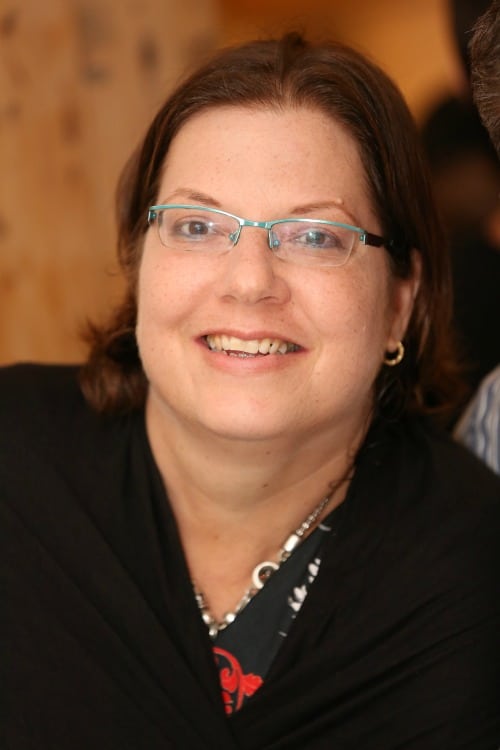
by Susie Newday (Israel) | Nov 20, 2013 | 2013, Cancer, Health, Israel, Susie Newday, World Motherhood

Neta sat down with World Mom contributor, Susie Newday in Israel to talk about living her life with metastatic breast cancer.
This is part three of our contributor and cancer nurse, Susie Newday’s, moving and in-depth interview on breast cancer with her close friend. Grab a cup of something warm, and come be a fly on the wall with us, as two friends discuss living with metastatic breast cancer. There is something for us all to learn. (Click to catch up and read Part I and Part II.)
Susie: Your diagnosis changed your life. How did it change your life in practical terms?
Neta: When I was first diagnosed, it almost didn’t change my life at all. I had very few side effects from the treatment, and I continued to work. It was a total of nine months with surgery in the middle of those months. I had chemo, surgery and radiation. I started the treatments from a place of strength. I think that, strengthwise, I’m a strong person. I was almost never sick. I had a body image of a healthy, strong person.
I was always athletic and strong. I never felt weak. And suddenly you change from the healthiest person in your mind to the sickest person, who is getting chemo that weakens you. And you get shots and blood and everything else that’s involved. I continued to work during that whole period.
The principal in my school said to me that she had never seen anything like this, someone going through such strong chemo who continues to function like this.
I would miss work for the day of treatment and the day after, and then I would work the next two weeks until the next treatment. Also during the six weeks of radiation, I would do it after work in the afternoon. The work kept me going. I would be very tired in the evening, but I continued to function more or less like normal. I worked a few less hours at work and managed to keep the house running more or less like normal. I did go to bed very early about 8 pm.
The only trauma was the hair loss. The kids took it very hard. They were very embarrassed for me to go around bald. All the kids, even the young ones, wanted me to wear some type of head covering. I had a wig.
I went to work with a wig, and whoever didn’t know about the cancer, didn’t realize. I was diagnosed over summer vacation, and I came back to work in September with a wig already. I didn’t hide it, but it took some people time to find out.
So, during the first bout of cancer I had a lot of energy, and I was lucky to have very few side effects.
S: Did you have nausea during your pregnancies? There seems to be a correlation between people who have nausea during pregnancy and nausea during chemo.
N: No I didn’t, and my doctor also said there is a correlation. I had very little nausea, if at all. As far as other side effects, I hated wearing the wig. It really itched me and was uncomfortable. The minute I was able to, I took it off and wore a head scarf.
S: Your trauma about the hair loss was because your kids took it hard, or was it something you yourself took hard?
N: It was also because of the kids and also because you don’t want anyone to know you are sick. I didn’t like the way I looked when I looked in the mirror, but I understood that it was something temporary, that it would grow back.
It was very hard for the kids. They didn’t want their friends to see me without a head covering. At home I didn’t wear a wig only a head scarf.
I only wore the wig to work and to special events. I think if it wasn’t for the kids asking me not to go without a head covering, I probably would have gone without anything.
S: When the cancer came back, how did you feel?
N: It was very hard. When it came back there were already metastases all over my bones. I had really bad back pain. I received radiation to my neck, but it didn’t help right away. It took time. In the beginning I had to wear a neck brace; initially, only for car rides; but then I had to wear it all the time. I was in terrible pain. For a few months I spent almost all day in bed, I couldn’t move. I could barely get up to go to the bathroom. It took a long time until I found the right pain medication regimen. So yes, things were different. I was in bed and everyone came to me.
S: How did you cope with such bad pain?
N: I remember I was in shock from the pain. I don’t know if I’m someone who doesn’t do the self-pity thing, but I do pity myself sometimes. The pain was so bad sometimes that I physically couldn’t do things, but I don’t remember having a feeling of being depressed.
Once again I summoned the energy. I had no choice. In my way of thinking, I had no choice. I have four children, and I can’t give up or take a time out from this world.
S: You did and do have a choice. You choose.
N: In my mindset, I have no choice. I have to cope, and I have for what to cope. I had to be strong because I have children and they need me, so I cope. My choice is to be here.
S: There is a lot of strength in knowing that you choose and that you are in the driver’s seat.
N: Even if it is a choice, it’s an automatic choice for me. I don’t stop to think, what am I going to do now?
S: That’s your mindset because your family and your kids are important to you.
N: I know that when some mothers are sick, thinking about the children and what will be with them can be depressing. For me, thinking about my children gives me a lot of strength because I want to be there for them. I want them to see that I can cope and that I can be there with them. Even when I was in bed all the time, the kids came to lay in bed next to me, and I read them books.
The kids are very important to me and they give me a lot of strength. They are what gives me the most strength. I love a lot of people in this world, friends and parents and family, but no one comes close to my kids in regards to their meaning in my life, in regards to my love for them, in regards to my commitment to them. The kids are just different. I choose to be there for them because I want what is best for them.
Because they give me so much strength, even when I was stuck lying in bed and not moving, I didn’t sink into a depression. I knew I had to fight. Maybe I am just a doing, practical type of person. I say to myself, this is what I have to do now, and these are my priorities and that’s what I do. I do think about things. I do understand the significance. I choose my priorities and what’s most important, what’s worth fighting for and what I will invest my energy in. What’s less important will wait.
That’s something that has guided me this whole period. The strength is finding the things that give you strength, to understand what they are, to stick with them. If for me what’s important is that my children have a normal childhood without major traumas (as much as I am able to control), if that’s what’s close to my heart, I will fight for it. If it means that in order for that to happen that I have to do something like asking for help even if asking for help is not easy for me, I will do it.
I remember in the beginning how hard it was for me to ask for help. You find yourself in a place of weakness and no one wants to feel weak, and pathetic and in need of help. It’s a lot easier to be the one giving help. Once upon a time I didn’t understand how hard it is to ask for and receive help. Healthy people generally don’t ask for help. I have been helped so much that I feel like I want to give back to people what I can. If I hear someone needs something that I can help with, I try to help.
Even though receiving help is hard, when the other choice is not receiving the help and having my children hurt by that I take the help because I need my children to have the most normal life that they can. What keeps me going is trying to figure out how to create the most normal surroundings for my children. I’ve done everything I can to make things easier on my children. My community is amazing. We’ve had unbelievable generous help from our friends and community, and I’m not sure that is something that can be found everywhere. People cooked for us for months, and even now if I need help taking the kids anywhere or to run errands they help me. Now that my husband is sick as well, when he doesn’t feel well we need more help as well because all of a sudden everything falls on me.
S: Have you thought about hiring someone to help you?
N: I have thought about it. We had someone for a while but it’s not easy bringing someone else into the home. I have been trying to refrain from that. If I see that I have no choice, that’s what I’ll do.
S: Do you find that it’s taking a physical toll on you doing it all by yourself?
N: I’m tired all the time but that’s not something new. Actually when I know that I have to rise to the challenge for a few days, I surprise myself and have found the strength. I’m tired but I manage and I feel good that I was able to manage. It also keeps the stability of the dynamics in the house. I choose to function. I’m trying to keep things as normal as possible. It doesn’t do good when people are coming in and out all the time. It hurts the household routine.
If I need to bring in help I will. The kids also understand that if I bring someone in to help that means that my husband and I are not functioning anymore and it stresses them out. They ask “What? You can’t do it by yourself?”
Tune in soon for Part IV of this IV part “World Mom to World Mom” series on living with metastatic breast cancer.
Cancer can happen to everyone. Listen to your body, treat it well and educate yourself about cancer symptoms. Learn not just about breast cancer symptoms (which are varied) but also the symptoms of ovarian cancer, GI cancer, lung cancer, pancreatic cancer and all the other cancers out there. Ask your parents about your family medical history. Do the recommended screening tests that are available to you because early detection of any cancer makes a hell of a difference.
Most of all enjoy every minute of your life because there are people out there who are dying for more time.
(For the full series: click here to read Part I, click here to read Part II, click here to read Part III and click here to read Part IV.)
This is an original post by World Moms Blog Africa & Middle East Regional Editor, Susie Newday in Israel.
Photo credit to the author.
Susie Newday is a happily-married American-born Israeli mother of five. She is an oncology nurse, blogger and avid amateur photographer.
Most importantly, Susie is a happily married mother of five amazing kids from age 8-24 and soon to be a mother in law. (Which also makes her a chef, maid, tutor, chauffeur, launderer...) Susie's blog, New Day, New Lesson, is her attempt to help others and herself view the lessons life hands all of us in a positive light. She will also be the first to admit that blogging is great free therapy as well. Susie's hope for the world? Increasing kindness, tolerance and love.
You can also follow her Facebook page New Day, New Lesson where she posts her unique photos with quotes as well as gift ideas.
More Posts - Website
Follow Me:






by Jennifer Burden | Nov 19, 2013 | 2013, Award, World Voice

Exciting news!!! World Moms Blog is a finalist for this year’s Bloganthropy Award, which “aims to recognize bloggers who have made a difference by using social media to effectively promote a good cause”, and we’re sooo excited!!
The award was created by Debbie Bookstaber and Candace Lindemann in 2010, and the amazing women who have been awarded include Katherine Stone (2010) of Post Partum Progress, the late Susan Niebur (2011) of Toddler Planet, Devan McGuinness (2012) of Unspoken Grief and Kristine Brite McCormick (special achievement award) of Cora’s Story.
This year’s finalists are invited to attend the Champions for Kids conference in Arkansas, USA, where the final award will be presented on Thursday, November 21st, 2013. Wish us luck!!
In addition to World Moms Blog, there are 2 other amazing finalists! Social Media Moms/New Jersey Digital Moms for their #JerseyLove campaign to help bring tourism back to the state of New Jersey in the USA after Superstorm Sandy and Denisse Montalvan of The Orphaned Earring for her creative idea to raise money for global orphanages by reengineering orphaned earrings are, both, also up for the Bloganthropy award. We are pleased to be in the company of a strong group of fellow finalists utilizing social media for social good!
Check out the full Bloganthropy Finalists 2013 press release.
And thank you to all of our contributors, editors and readers around the globe who have supported our social good initiatives, such as the #Moms4MDGs campaign to raise awareness for the UN’s goals to end extreme poverty, our World Voice column, GAVI Global Tea Parties to raise awareness for the importance of and access to life-saving immunizations for children in the developing world, fundraisers for CleanBirth.org and Shot@Life and for participating in the annual Social Good Summit and UN General Assembly festivities in New York City this year. And to our core, our World Moms who share their stories every week about what it’s like to be a mother around the world in good times and in tough times and who have jumped out of their comfort zones to report first-hand on events in their home country. Here’s to promoting understanding and tolerance by providing the world a window into the life and thoughts of a World Mom. And here’s to being a Bloganthropy award finalist!! Congrats to the World Moms Blog team!
Follow our Twitter Feed (@WorldMomsBlog) on Thursday, November 21st, 2013 for updates from the Champions for Kids conference!
This is an original post to World Moms Blog by founder, Jennifer Burden of the USA.
Photo credit to Bloganthropy.

Jennifer Burden is the Founder and CEO of World Moms Network, an award winning website on global motherhood, culture, human rights and social good. World Moms Network writes from over 30 countries, has over 70 contributors and was listed by Forbes as one of the “Best 100 Websites for Women”, named a “must read” by The New York Times, and was recommended by The Times of India.
She was also invited to Uganda to view UNICEF’s family health programs with Shot@Life and was previously named a “Global Influencer Fellow” and “Social Media Fellow” by the UN Foundation. Jennifer was invited to the White House twice, including as a nominated "Changemaker" for the State of the World Women Summit. She also participated in the One Campaign’s first AYA Summit on the topic of women and girl empowerment and organized and spoke on an international panel at the World Bank in Washington, DC on the importance of a universal education for all girls. Her writing has been featured by Baby Center, Huffington Post, ONE.org, the UN Foundation’s Shot@Life, and The Gates Foundation’s “Impatient Optimists.” She is currently a candidate in Columbia University's School of International and Public Affairs in the Executive Masters of Public Affairs program, where she hopes to further her study of global policies affecting women and girls.
Jennifer can be found on Twitter @JenniferBurden.
More Posts - Website
Follow Me:


 This year, we have a unique occurrence, Thanksgivvukah. (Yes, I know that by now the phrase is probably coming out of your ears.) There are debates as to whether Thanksgivukkah is a once in a 70,000 year event or a once in a decade event. Either way, the last time it happened was 1888 and I doubt any of us will be around for the next one.
This year, we have a unique occurrence, Thanksgivvukah. (Yes, I know that by now the phrase is probably coming out of your ears.) There are debates as to whether Thanksgivukkah is a once in a 70,000 year event or a once in a decade event. Either way, the last time it happened was 1888 and I doubt any of us will be around for the next one.





















